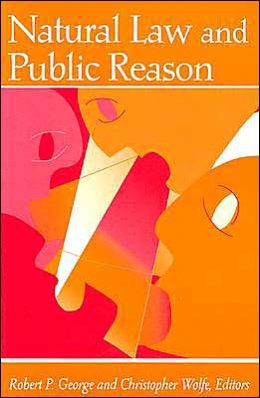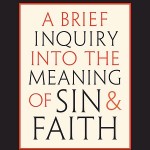NOTE: This is a research note as I compile my literature review.
Robert George and Christopher Wolfe argue that the “reason” aspect of public reason automatically cast religion as somehow being unreasonable or irrational (George 2000, 67). For George and Wolfe, public reason is hostile to religion in that the revelation which stands as the basis of religious faith is sacred rather than “publicly accesible” (67).
George and Wolfe contends that prior to 1947 and the Supreme Court case Everson v. Board of Education, the “American public philosophy took the political relevance of a providential God for granted” (68). He cites as evidence of this both the appeal to the “Creator” in the Declaration of Independence and the majority opinion of Justice Douglas in the 1952 Zorach v. Clauson case (68). In that opinion, Douglas declared that “[w]e are a religious people whose institutions presuppose a Supreme Being.”
Robert George and Christopher Wolfe blame the move away form a religious public philosophy on intellectuals and elites “whose religious beliefs and practices, it should be noted, are in most cases dramatically out of line with the beliefs and practices of their fellow citizens” (68).
The critique of George and Wolfe in many ways devolves into a populist argument against liberal elitism. But George supposes that thinkers like Rawls have a hostile view of religious views, particularly the unsophisticated religious views of the average church-goer, as opposed to that of a philosopher of religion. However, I think he asks a valuable question when they ask:
Is the existence of a providential God (e.g., a God who creates and attends to his Creation), therefore, “publicly accessible” and thus defensible at the bar of public reason (broadly and properly defined–not Rawlsian public reason)? We like virtually all the founders of American government, think it is.
Some religious believers (perhaps especially certain evangelicals) might go further. They appeal to the Bible, and argue that the Bible is true, and should be recognized as true by any reasonable person. To the extent that “faith” is necessary, they would argue that faith is available to all. (They make no gnostic claim to a body of special, secret knowledge, accessible only to an elite.) And such believers are not if not willing to share their “reasons” in public! On what nontheological grounds can liberals deny that such claims are, in fact, “publicly accessible” to all? The simple fact that “some people don’t believe” won’t do; that’s true of virtually all positions (certainly including liberal contentions). Unless “reason,” as liberals understand it and its implications, is said to, in principle, a superior source of knowledge, why should liberal reason be privileged over evangelical faith? In a given society, faith might actually be viewed by a large majority of society as a more, rather than less, “publicly accessible” form of knowledge. Aside from comprehensive liberalism’s religious skepticism, is there a clear reason, other than the conventional beliefs of American intellectual class, why religion–even in the form of revealed religion–should be considered any less publicly accessible than, say, Rawlsian liberalism? (69)
George agrees that differing beliefs will create tension with the public square, but he does not see how liberal public reason helps resolves such tensions with religion and politics, anymore than it does tensions with politics and morality (69-70).
I will be arguing that George and Wolfe mischaracterize Rawls’ project. They is not alone in doing so. My primary task here is to lay out some of there arguments about public reason. In my larger project, I will be looking at both how they mischaracterize the argument Rawls makes in Political Liberalism and the essay “Public Reason Revisited.” but also how Rawls’ own writings on religion (both his thesis and the note “On My Religion”) shine light on this misinterpretations (Rawls 1996, Rawls 1999, and Rawls 2010)
Of course, George and Wolfe make these arguments without knowledge of these other writings, but I think that he is completely misses what Rawls is proposing even just based on Rawls’ available works at time on political liberalism and public reason.
George, Robert P., and Christopher Wolfe. “Natural Law and Public Reason” in Natural Law and Public Reason.
George, Robert P. and Christopher Wolfe eds. Washington: Georgetown University Press, 2000.
See the full bibliography here.
For other posts related to this project, check out this link.












